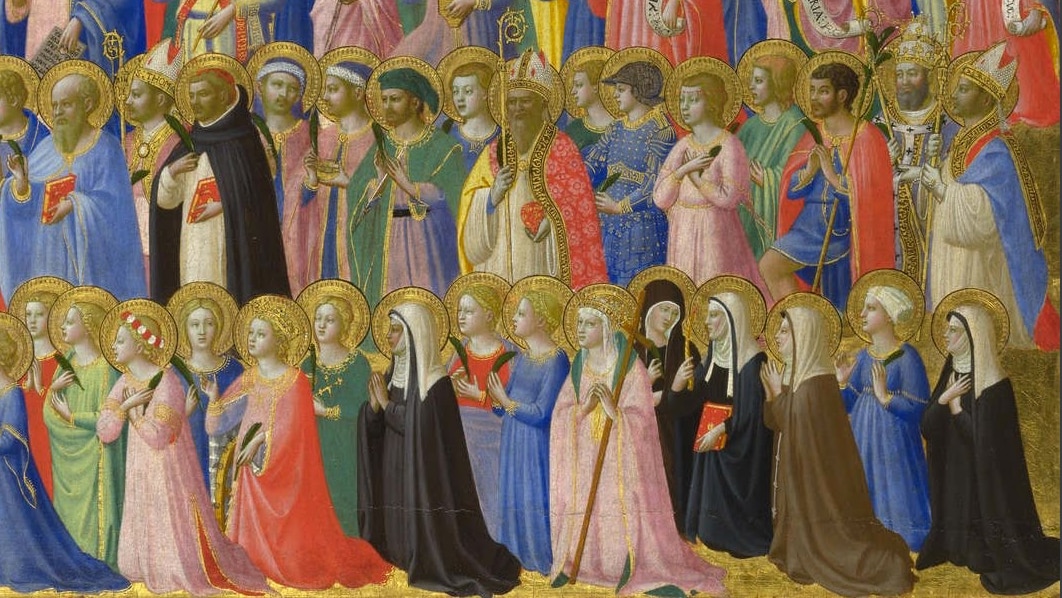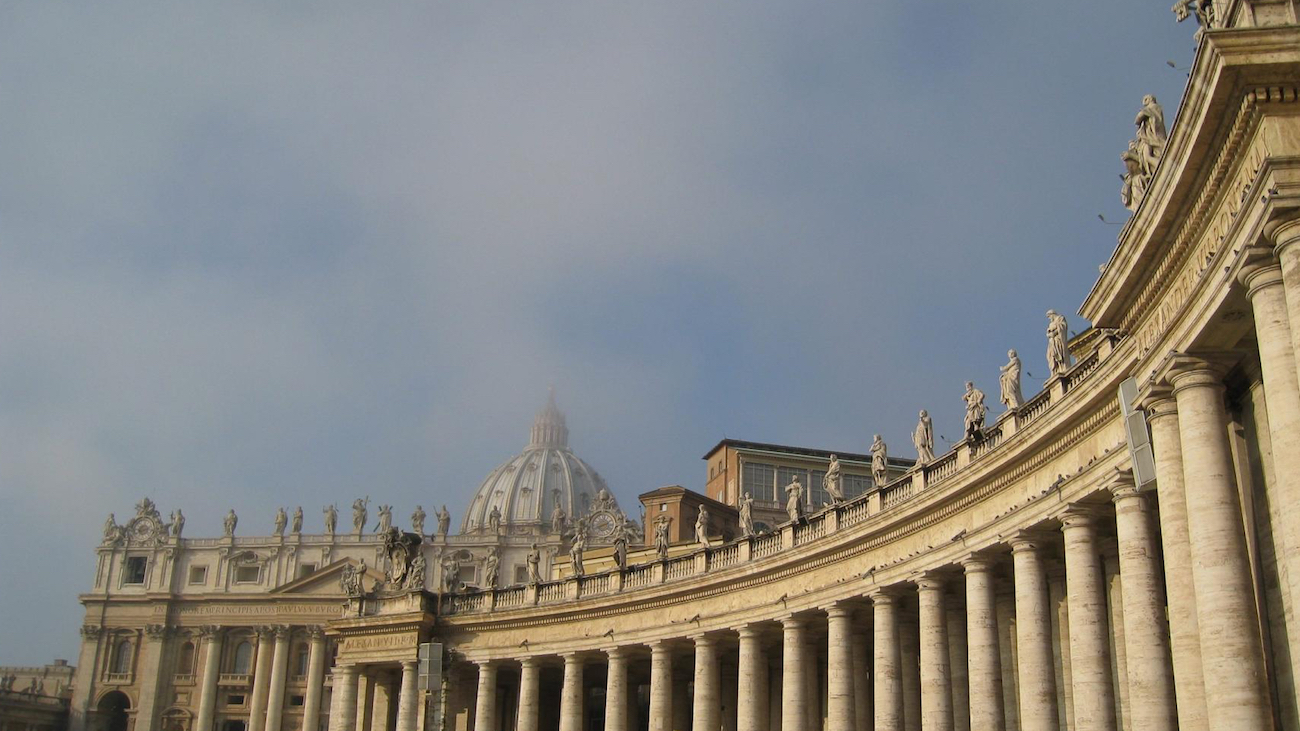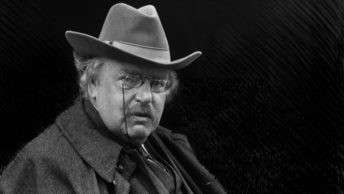What do we truly get out of the Gospel passages whenever we hear them proclaimed in church on Sunday? I believe that it would be much more spiritually beneficial if, at least now and then, we would not take the gospel selection as … Gospel truth, passively, unemotionally, with pious detachment that leaves us unaffected and thinking: “oh, déjà vu!” Shouldn’t we instead let the Gospel sting us and force us to react to it with, shall we say, a kind of “troubling pause?”
Take, for example, the Gospel of John (1: 29-34). It should, definitely, call us to a vigorous mental and spiritual reaction.
Under which reasonable circumstance could we picture John the Baptist uttering this outlandish, incomprehensible, shocking statement: “Behold, the Lamb of God, who takes away the sin of the world?” His first audience knew already that John was a very holy man although a lot more than merely peculiar; but what could they possibly make of this mysterious introduction of Jesus?
We cannot overlook that they were members of the “(old) Jerusalem,” i.e. God’s chosen people of old. Hit by this unusual gospel passage, we might assume that John’s audience looked at Jesus and wondered in what way he could have been compared to a lamb. “In what way—they must have thought—is this peasant from Nazareth, like the paschal lamb whose blood smeared on the doorposts of the Hebrews homes in Egypt had spared them from the devastating hand of God’s angel who slain the firstborns in all Egyptian families?”
Those better versed in Holy Scripture might have recalled the following passage from the Book of Exodus (13:12-15):
“You shall dedicate to the LORD every son that opens the womb; and all the male firstlings of your animals shall belong to the LORD. Every first-born […] you shall redeem with a lamb. […] Every first-born son you must redeem. If your son should ask you later on, ‘What does this mean?’ you shall tell him, ‘With a strong hand the LORD brought us out of Egypt, that place of slavery. When Pharaoh stubbornly refused to let us go, the LORD killed every first-born in the land of Egypt, every first-born of man and of beast. That is why I sacrifice to the LORD everything of the male sex that opens the womb, and why I redeem every first-born of my sons.’”
Some in John’s audience might even have evoked the time they redeemed their firstborn baby boys, forty days after birth with a sacrificial lamb in the Temple.
Or, gazing again at Jesus, they might have thought of Isaiah’s prediction about Yahweh’s obedient servant: “Though he was harshly treated, he submitted and opened not his mouth; Like a lamb led to the slaughter or a sheep before the shearers, he was silent and opened not his mouth.” (Isaiah 53:7)
Yes, Jesus was definitely much gentler and meeker than John! Others might have seen images of lambs slaughtered every morning and every evening in the Temple; yet remained puzzled, not knowing what to make of John’s statement.
But, wait, didn’t John introduce Jesus as more than an ordinary “lamb?” Plainly, Jesus was unlike any lamb they had ever seen. Jesus was referred to as the “lamb of God,” a very special lamb, not a lamb offered by mortal worshipers to Yahweh, but the Lamb that Yahweh God had provided for his chosen people!
From the time of the deliverance from the bitter slavery in Egypt, the blood of Passover lambs had sealed the gratitude of the chosen people for freedom from physical servitude and harsh, cruel labor. Hence, some in John’s audience must have begun to wonder what the Lamb provided by God would do for God’s new chosen people, for the Church, for the New Jerusalem.
I believe that it is not so important to determine when exactly the Church, the New Jerusalem understood fully the weight of John’s unprecedented remark. What is vitally important is how, on this day, we react as we hear that same remark hitting us in the guts and cutting to our heart.
First of all, John the Baptist is pointing out that Jesus is the Lamb that God the Father has provided for us citizens of the New Jerusalem. And what this Lamb has in common with the myriads of lambs sacrificed on the Temple’s altar is the spilling of blood. Furthermore, being the one offered by God the Father this Lamb points to the infinitude of the Father’s love for us.
So, we have to come to grips with the shocking, irreversible fact that God the Father has gone down a one-way street. The Blood shed on the cross cannot be poured back into the lifeless body of Jesus. That also indicates that God the Father cannot sacrifice anyone else beyond the Son to prove his love for us.
Now, taking into consideration that the blood of the Passover lamb proved adequate for freeing the whole people of Israel from slavery in Egypt, we must wonder what type of freedom demanded the Blood of the Paschal Lamb. Well, the closer we are to the heart of our Father, the more easily we would understand that it is the sin of the world that can be taken away only by the Blood of God’s Lamb.
Let us allow ourselves to be hit hard by this stark and bold reality: the sin of the world is the gigantic mount of all the sins committed by human frailty and wickedness across the millennia and up to the end of time. In all this there is a trend that has not changed over the millennia. Freedom from slavery, freedom from cruelty, envy, violence, hatred, exploitation, greed, lust, hubris and any other sin is attained exclusively by the shedding of innocent blood. Not the blood of the guilty, but the blood of the innocent. Sin and its dreadful consequences have no easy, painless solutions.
Right before we become even physically one with Christ by our consuming his flesh and blood, we will hear these words: “Behold the Lamb of God, behold him who takes away the sins of the world. Blessed are those called to the Supper of the Lamb.” Upon hearing these words once again, we will know if that phrase, perhaps already too familiar, has stung us hard enough to inspire us to commit ourselves to self-sacrifice. Along with many other citizens of the New Jerusalem, will we feel moved by the Blood of God’s Lamb to act courageously and generously in alleviating, at high personal cost, the pain caused by sins, large and small, on our fellow men and women?








